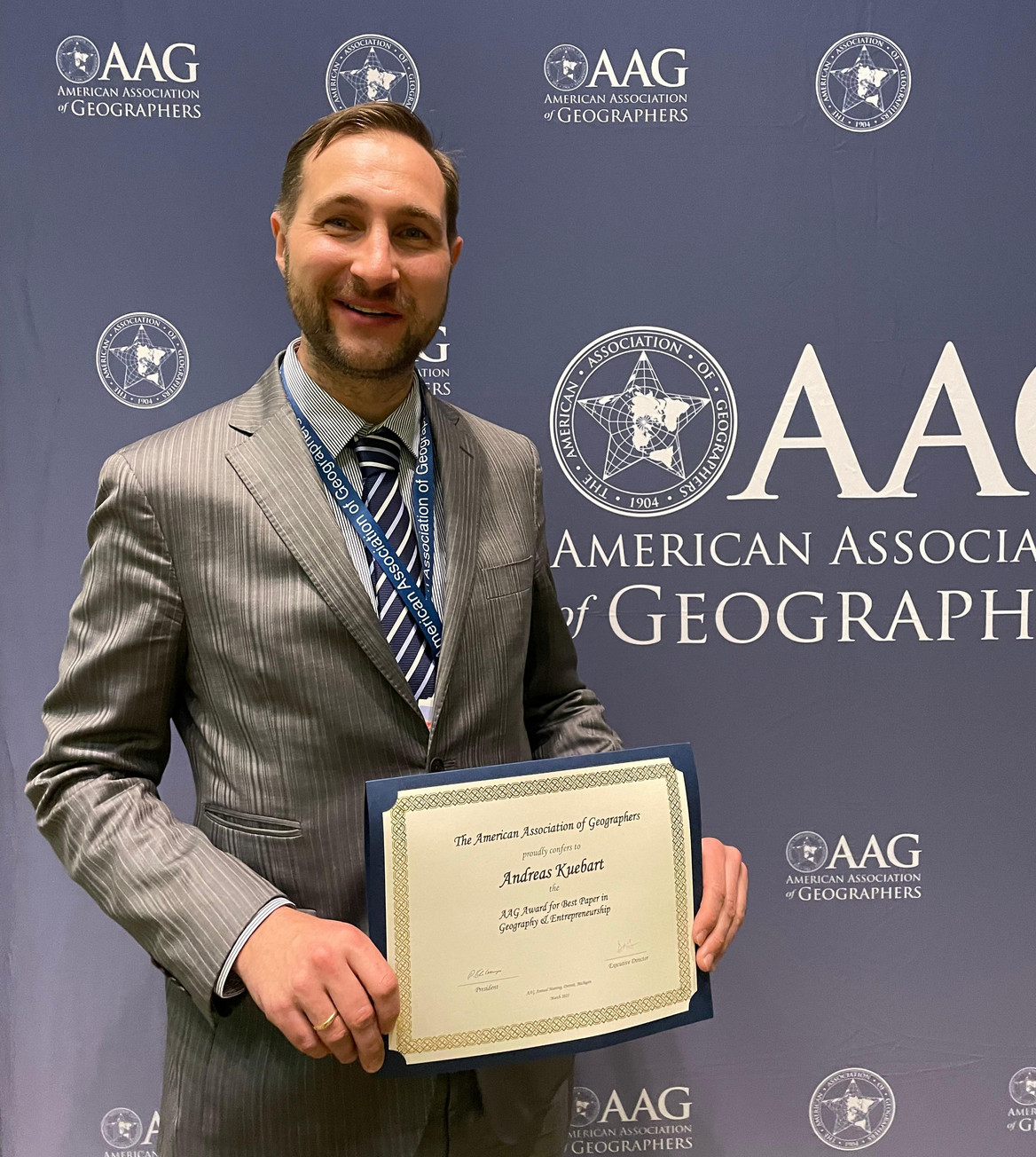Main Content
Award for Paper on Entrepreneurial Ecosystems
IRS Researcher Andreas Kuebart and Co-Authors Receive Best Paper Award

Start-ups benefit from an environment with a high level of entrepreneurial activity, creative energy and a lot of exchange. Such entrepreneurial ecosystems were long thought to be local phenomena. A new article now shows that they are in fact networked across regions, and also explains how such networks come about. The authors have now been honoured for their work.
The article "No islands of entrepreneurship—mapping the trans-local dimension of entrepreneurial ecosystems through networks of accelerator participation," authored by Andreas Kuebart (Brandenburg University of Technology Cottbus-Senftenberg and the IRS), Erica Santini (University of Trento, Italy), and Valentina Forrer (Free University of Bozen-Bolzano and Nottingham University, UK), was honored with the 2025 Best Paper Award in Geography & Entrepreneurship by the American Association of Geographers (AAG) and the Kauffman Foundation. This recognition highlights the study's significant contribution to understanding the interconnectedness of entrepreneurial ecosystems.
Entrepreneurial Econsystems Networked Across Regions
The article empirically demonstrates that startup ecosystems are not only locally networked but also interconnected across cities, forming a broader trans-local network of innovation and collaboration. While startup ecosystems have traditionally been viewed as localized phenomena, the authors challenge this notion by examining the role of accelerators—programs supporting startups—in fostering connections between ecosystems.
A defining aspect of the study is its use of the unique dataset "Startup Heatmap List" from Deep Ecosystems, which tracks participants of major accelerators in Europe over several years. By employing spatial network analysis, the researchers mapped and analyzed how startup ecosystems interact across locations, visualizing the exchange of resources and knowledge between hubs.
Conceptually, the paper offers fresh perspectives on the spatial dynamics of entrepreneurial ecosystems. It shows how accelerators not only support individual startups but also act as bridges connecting diverse ecosystems, facilitating knowledge sharing and innovation across regions. This innovative approach expands the understanding of startup ecosystems, illustrating that they are part of a larger, interconnected network rather than isolated "islands."
A Chance for Regional Development
The findings offer strategic insights for regional policymakers, who can leverage accelerators and similar programs to break down regional silos. Startup ecosystems should thus be seen as "open regions," where knowledge and resource exchange across local, national, and international networks is of critical importance. The mobility of startups between regions should be viewed not as a threat but as a driver for connectivity and shared development. Depending on the ecosystem, accelerators can serve as local innovation centers or as network hubs facilitating cross-border exchange. This differentiated approach strengthens the competitiveness and integration of smaller ecosystems into global networks.

